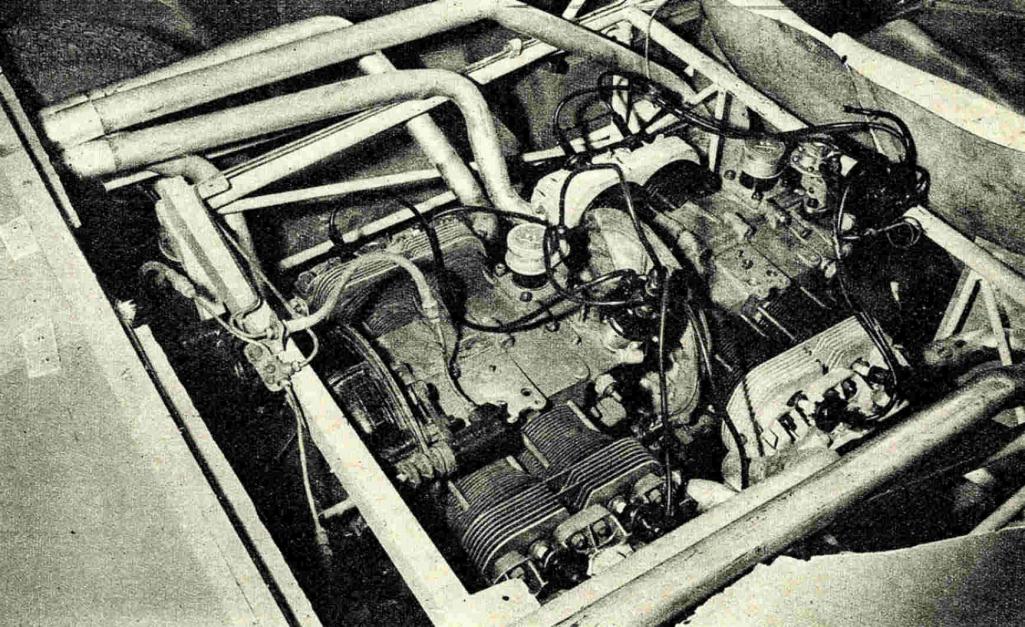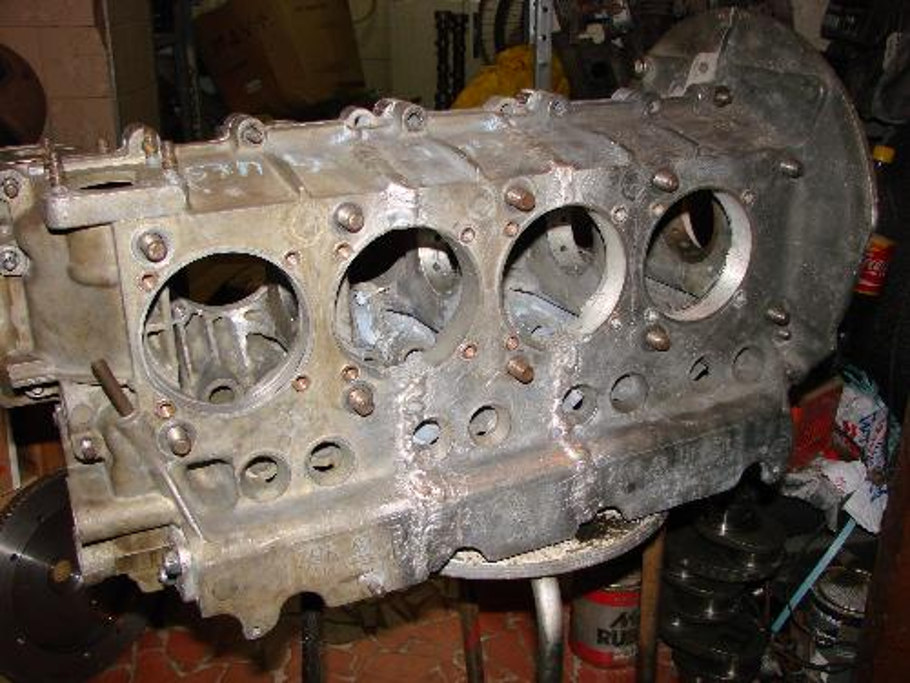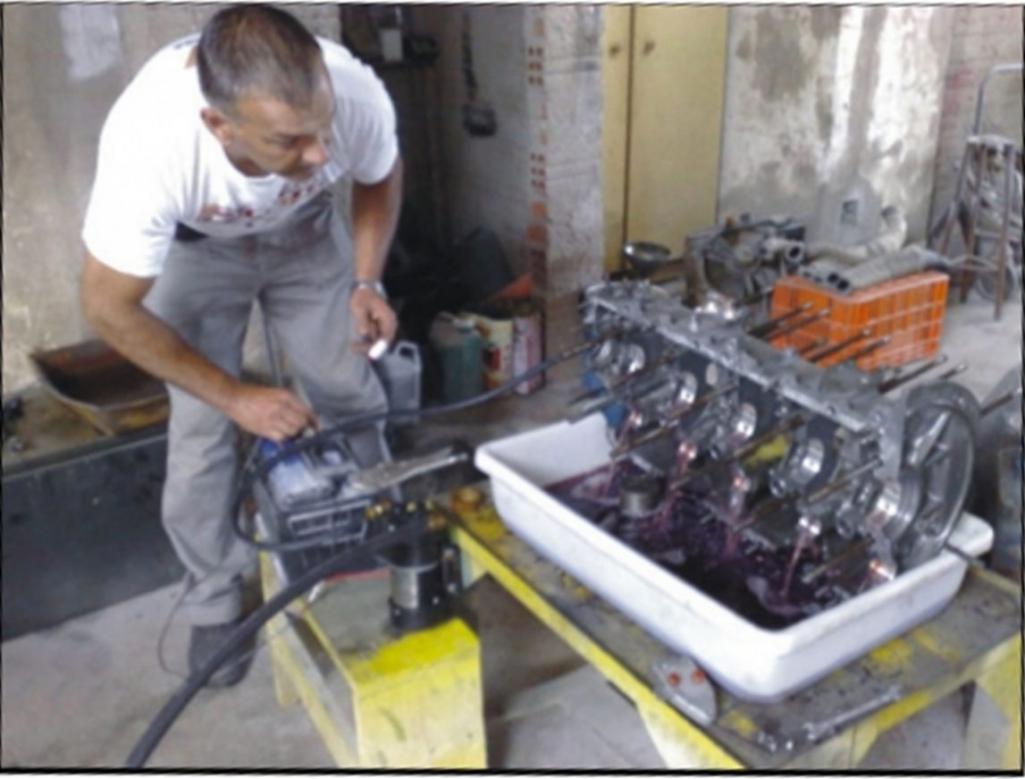Printable Version of Topic
Click here to view this topic in its original format
914World.com _ 914World Garage _ Engine experts
Posted by: r_towle May 26 2023, 07:05 PM
I’m going to build a flat 8.
Not asking to debate this, but it’s the premise of my current research.
In the only successful motor built like this, in Brazil in the 70s or 80s, they had issues getting oil at sufficient pressure to the crank/valves furthest away from the pump.
So, I have two ideas.
If you look at the 911, there is an external oil feed pumping oil into the valve train.
I’m thinking of something like that, but not sure how to route it, or the right place to inject oil ….maybe at the beginning of the second case….or the other end and feed it backwards.
Or
I could enlarge the internal oil galley in the first motor to increase volume.
I expect I will need to find the highest volume pump I can.
I assume different pressure relief valves.
I assume eternal oil cooler and filter.
The rest of the architecture looks fairly straight forward.
I need help, experience, and some hotrod thinking on the oil issue.
Posted by: technicalninja May 26 2023, 08:51 PM
If I was building a POC (proof of concept) engine I'd simplify the oil system routing by taking it external and running a dedicated dry sump system.
These are commonly driven by a small gilmer belt and are stacked units.
I've seen dry sump pumps with 2 pressure sections and 5 scavenge sections.
You can set up whatever you wish and change stuff around easily if needed.
The only downside is added complexity of the external lines and the overall cost.
Building a flat eight out of two different engines will be harder than building a H8 case (billet aluminum would be my choice) in the first place.
I would expect this to be an expensive endeavor.
Far more expensive than buying a 3.6 and a 915 gear box...
Far more expensive than adapting a Ferrari V8...
Far more expensive than fitting a twin turbo Bently W12 and PDK...
Would definitely be at or above the same level of WOW as the above.
I bet a custom H8 crank would be 50K from a reputable crank builder if you could find one that would try.
It would still be very neat to see someone do this.
Water pumper or air cooled?
NA or boosted?
What vehicle do you plan on installing this in?
Posted by: mepstein May 26 2023, 09:32 PM
I would go to someone making billet type 1 engines and see if they could add cylinders. Then do the same with the crank. Won’t be cheap but if it can be done, it won’t be starting from scratch.
I would think it’s more of a Jay Leno type of project or someone who has a couple 100k to throw at a whimsical project.
Posted by: r_towle May 26 2023, 11:14 PM
Welding two cases together is proven.
Posted by: 930cabman May 27 2023, 10:04 AM
I have an extra F355 engine collecting dust if anyone is interested
Posted by: Superhawk996 May 27 2023, 11:23 AM
I have an extra F355 engine collecting dust if anyone is interested
Since it’s in your way . . . Just send it to me, I’ll “store” it for you
With respect to OPs post - I wish you the best of luck - what you’re contemplating is no small task. I’d suggest you look into old dragsters of the 60s. There were quite a few Siamese’d engines tried in dragsters back then.
Posted by: VolksSled May 27 2023, 03:44 PM
Welding two cases together is proven.
For once I agree with this guy
And theses guys ….
https://oldmachinepress.com/2021/07/20/daimler-benz-db-606-db-610-and-db-613-doppelmotoren/
Posted by: r_towle May 27 2023, 04:48 PM
Post
Attached image(s)


Posted by: Dave_Darling May 27 2023, 05:46 PM
OHC or pushrod-actuated valves? Two flat-fours, or a couple of sectioned flat-sixes? Or going water-cooled?
Realistically, to get the oil where it needs to go you will probably have to re-engineer the whole oiling system. technicalninja's suggestion of running external lines to where you need the oil is probably the easiest and most straight-forward way to do it.
Adequate cooling will also be an interesting challenge.
--DD
Posted by: fixer34 May 27 2023, 05:56 PM
So the first picture looks like they just bolted 2 engines together, nose of one to the flywheel end of the other. Each case in that situation has its own oil system.
I'm guessing you are going for the second picture where you weld 2 cases together with a filler piece from a third.
Happened to be at an indoor sport complex today and saw exactly what you need to deal with. The overhead ventilation system starts with a very large pipe and then gradually decreases in size as it extends further into the building.
The question is, can you increase the pump intake, flow, and size of the front block oil galleries/passages enough? They are what, 11-12mm now? Rough calculations (area) you need to enlarge them to about 17mm.
Posted by: r_towle May 27 2023, 06:09 PM
So the first picture looks like they just bolted 2 engines together, nose of one to the flywheel end of the other. Each case in that situation has its own oil system.
I'm guessing you are going for the second picture where you weld 2 cases together with a filler piece from a third.
Happened to be at an indoor sport complex today and saw exactly what you need to deal with. The overhead ventilation system starts with a very large pipe and then gradually decreases in size as it extends further into the building.
The question is, can you increase the pump intake, flow, and size of the front block oil galleries/passages enough? They are what, 11-12mm now? Rough calculations (area) you need to enlarge them to about 17mm.
Getting closer.
What are the inputs to know what is correct?
If you notice the last picture, this is 1/2 of the welded case while they were trying to figure out how to increase oil pressure .
External, dry sump, can be done
External pump, ok
External cooling ok
Now where to inject oil….hmm
Posted by: r_towle May 27 2023, 06:13 PM
This video, and complete story, makes me inspired to do this, yet use new tech to solve some issues.
Listen to this…
https://m.youtube.com/watch?v=tXKcpbFF7WI&embeds_referring_euri=http%3A%2F%2Fwww.914world.com%2F&source_ve_path=MjM4NTE&feature=emb_title
Posted by: 930cabman May 27 2023, 06:23 PM
Good luck with this project, not for the meek by any stretch. Also, if the factory did it, I'm sure it can be done again. Just a mountain of $$$
Powered by Invision Power Board (http://www.invisionboard.com)
© Invision Power Services (http://www.invisionpower.com)
